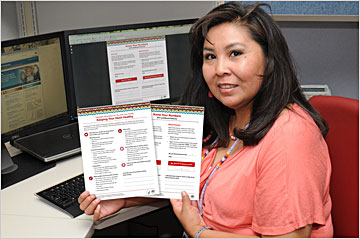Clinical Resources
The IHS Division of Diabetes developed the resources below specifically for clinicians and educators working with American Indian and Alaska Native diabetes patients.
Diabetes Standards of Care and Resources for Clinicians and Educators
The Diabetes Standards of Care and Resources for Clinicians and Educators are intended to provide guidance to clinicians and educators as they care for American Indian and Alaska Native people who have or are at risk for type 2 diabetes. Use the Recommendations At-a-Glance as a quick reference. For each diabetes care topic, click on the link below to find regularly-updated recommendations, useful clinical tools and resources, and patient education materials.
Diabetes Care Topics by Group
All Diabetes Care Topics
- Adult Weight Management
- Alcohol and Other Substance Use
- Aspirin and Other Antiplatelet Therapy
- Blood Pressure
- Contraception
- Depression
- Diabetes Prevention
- Diabetes Self-Management Education and Support
- Diagnosing Type 2 Diabetes and Identifying Prediabetes
- Distinguishing Between Type 1 and Type 2 Diabetes
Diabetes Treatment Algorithms
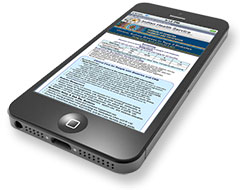
These algorithms provide clinicians with a quick reference to specific diabetes care recommendations based on national guidelines and the Diabetes Standards of Care and Resources for Clinicians and Educators. These tools are developed with Indian Health Service clinical consultants, pharmacists, and other professionals.
The algorithms provide:
- Basic information of diabetes-related conditions.
- Step-by-step management of common clinical problems.
- Dosing, common adverse reactions, and contraindications for medications on the IHS National Core Formulary.
- Treatment targets and recommended monitoring parameters.
The Diabetes Treatment Algorithms are intended to serve as a tool for providers who treat patients with type 2 diabetes. They are updated periodically but changes in national practice may occur more quickly—users are advised to stay abreast of current clinical practice recommendations.
Chronic Kidney Disease in Type 2 Diabetes
Download Algorithm [PDF – 614 KB]
Glucose Management in Type 2 Diabetes Medications
Download Handout [PDF – 252 KB]
Hypertension Therapy in Type 2 Diabetes
Download Algorithm [PDF – 99 KB]
Lipid and Aspirin Therapy in Type 2 Diabetes
Download Algorithm [PDF – 170 KB]
Diabetes Education Lesson Plans
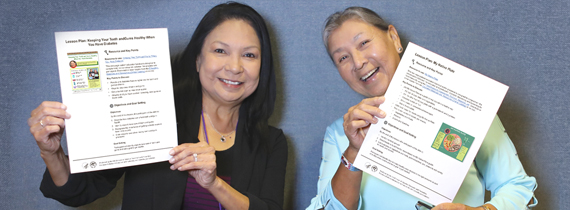
Looking for lesson plans for your education sessions? They're here and they're free!
Each lesson plan topic includes:- A printable PDF lesson plan
- Educator resources
- Participant materials and handouts
These lesson plans offer culturally relevant materials that are adaptable for individual or group sessions and can complement existing diabetes education curricula.
Physical Activity
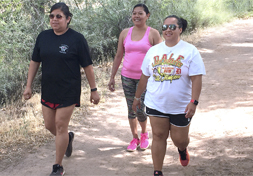
Lesson Plans:
How To Get Started Walking
[PDF – 762 KB]
How To Walk Farther And Faster
[PDF – 716 KB]
Diabetes Educator Tools
Guides for Diabetes Programs
Integrating Case Management Into Your Practice [PDF – 290 KB] – Use this Case Management guide to assist you in meeting the health needs of individuals in your clinic and community diabetes programs.
Integrating Diabetes Self-Management Education and Support Into Your Practice [PDF – 548 KB] – Use this guide to learn about DSMES and ways to integrate it into your diabetes program. You can also explore helpful resource links within.
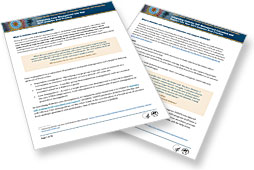
Tipping the Motivational Balance for Change
Four-part webinar series on behavior change techniques presented by Darryl Tonemah, PhD.
Education Materials and Resources (Online Catalog)
Are you looking for more? Search for all materials and resources offered by the Division of Diabetes using the Education Materials and Resources (Online Catalog).
- Find culturally relevant and easy-to-use materials for providers, patients, and clients.
- Materials are free to order, or to download and print.
- Search by Audience, Topic, Format or Title/Keyword.
Kidney Health
 Learn the essentials of chronic kidney disease (CKD) and how it can be prevented and treated. This site includes basic information about kidney disease and CKD care for educators and patients. Also find a list of CKD resources and training for clinicians and diabetes educators.
Learn the essentials of chronic kidney disease (CKD) and how it can be prevented and treated. This site includes basic information about kidney disease and CKD care for educators and patients. Also find a list of CKD resources and training for clinicians and diabetes educators.
For Educators and Patients
Find links, videos, and handouts about kidney disease risk, screening and monitoring, and management of CKD.
 Keeping the kidneys healthy is important for people with diabetes. Maintaining healthy blood pressure, controlling blood sugar and cholesterol levels, and not smoking help reduce your risk of developing CKD.
Keeping the kidneys healthy is important for people with diabetes. Maintaining healthy blood pressure, controlling blood sugar and cholesterol levels, and not smoking help reduce your risk of developing CKD.
| Resource | Description and Source |
|---|---|
| Preventing Chronic Kidney Disease | Website providing tips to help keep kidneys healthy and questions to ask the health care provider during medical visits. Source: National Institute of Diabetes and Digestive and Kidney Diseases |
| Kidney Disease | Website gives information about the basics of kidney disease and what kidneys do. Also provides a video about why testing is important. Source: National Institute of Diabetes and Digestive and Kidney Diseases |
| Preventing Diabetes Problems: Diabetic Kidney Disease | Reference this webpage for information about the link between diabetes and kidney problems. Source: National Institute of Diabetes and Digestive and Kidney Diseases |
| Your Kidneys and How They Work | Printable 4-page handout to better understand how the kidneys work, what they do, causes of kidney failure, stages of chronic kidney disease, and more. Source: National Institute of Diabetes and Digestive and Kidney Diseases |
| Your Kidney Test Results [PDF] | Printable two-page tool to track your kidney test results. An explanation of why each test is important is also listed on this easy-to-use handout. Source: National Institute of Diabetes and Digestive and Kidney Diseases |
 There are five stages of CKD, ranging from mild to severe. Most people will not have any symptoms from CKD, while others may eventually need dialysis.
There are five stages of CKD, ranging from mild to severe. Most people will not have any symptoms from CKD, while others may eventually need dialysis.
CKD is complex. Talk to your health care provider about CKD and find out what you can do to take care of your kidneys.
| Resource | Format |
|---|---|
| Chronic Kidney Disease: What Does It Mean For Me? [PDF – 948 KB] | Printable 14-page booklet to help gain a broad overview of chronic kidney disease. Source: National Kidney Diabetes Education Program |
| Keeping Kidneys Safe: Smart Choices about Medicines | Website about the medicines or supplements that a person may be taking and what they should do to find out if they are safe to use. Source: National Institute of Diabetes and Digestive and Kidney Diseases |
| Managing Chronic Kidney Disease | Website with a wealth of information for those who have been newly diagnosed with chronic kidney disease. Source: National Institute of Diabetes and Digestive and Kidney Diseases |
Eating Right for Chronic Kidney Disease
|
Helpful tools and handouts to get quick tips for eating right for kidney health, reading food labels, and nutrients and minerals that make a difference when managing chronic kidney disease. Source: National Institute of Diabetes and Digestive and Kidney Diseases |
For Clinicians and Diabetes Educators
Increase knowledge about kidney disease and CKD prevention. Several resources and trainings for clinicians and educators are available from the listed websites.
The care of people with chronic kidney disease (CKD) presents many challenges. The National Institute of Diabetes and Digestive and Kidney Disease has developed a number of educational resources to enhance knowledge and skills of health care team members. Courses are free, and CME credit may be available through partner organizations.
Available Professional and Continuing Education online training includes the following courses:
- Counseling Patients on NSAID Use to Prevent Kidney Injury
- Helping Diabetes Educators Care for Patients With Kidney Disease
- Chronic Kidney Disease Nutrition Management Training Program
- Chronic Kidney Disease Management for Pharmacists
IHS Diabetes LISTSERV.



















